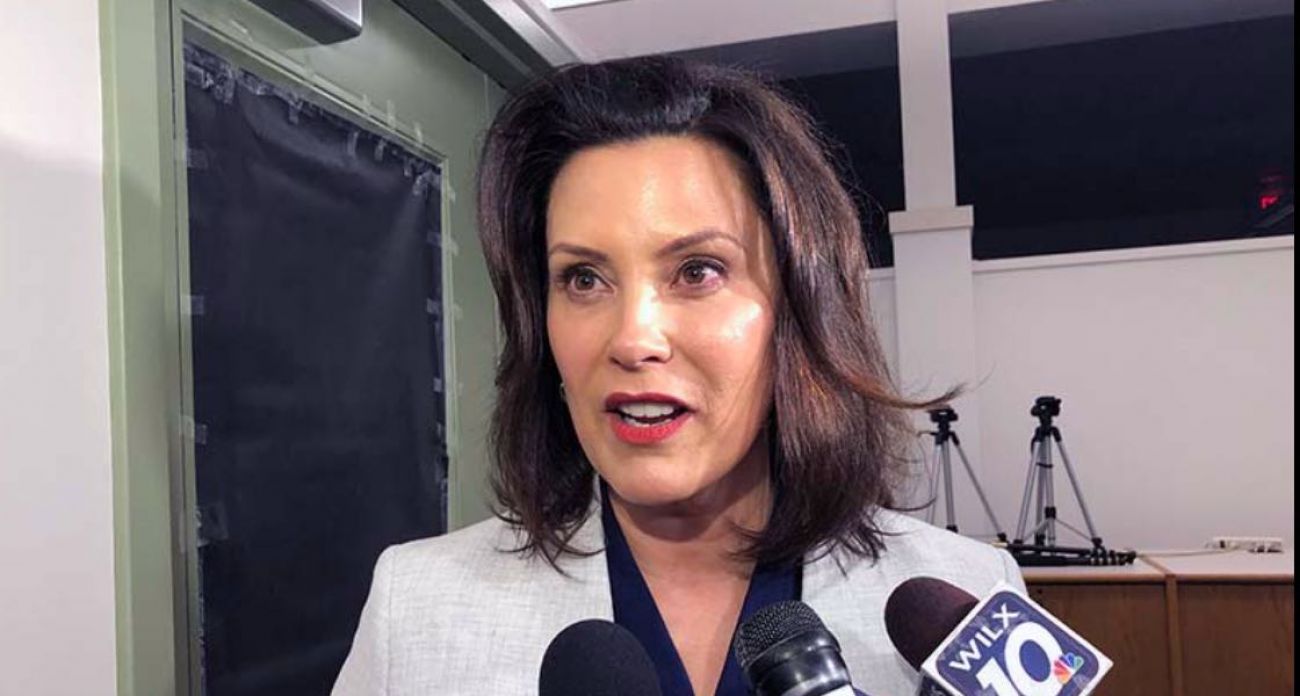What’s next for Michigan budget: Gretchen Whitmer plans more shifts to GOP plan

LANSING — Michigan's months-long budget fight is set to continue Tuesday when a board controlled by Democratic Gov. Gretchen Whitmer meets to reconsider spending approved by the Republican-led Legislature.
Whitmer on Monday signed 16 separate budget bills to avoid a government shutdown Oct. 1, but she used her line-item veto power to reject 147 GOP spending provisions. It was not immediately clear if she declared other provisions constitutionally or statutorily unenforceable.
Whitmer’s line-item vetoes on Monday trimmed nearly $1 billion from the $59.9 billion budget. The first-term governor is also expected to use the State Administrative Board for a rare maneuver to shift money within departmental budgets — and without authorization from the Legislature, which took its own rare step by completing budgets without administration input.
The end-around would cap an already uniquely contentious budget process, said Mitch Bean, who led the non-partisan House Fiscal Agency from 1999 to 2011.
“I’ve never seen [a budget] go through when the executive was completely aced out of the process, which is effectively what happened,” Bean said, noting Whitmer had little time to consider budget bills since 11 of 16 budget bills did not reach her desk until Friday.
While unresolved budget disputes led to brief government shutdowns in 2007 and 2009, “that was a different situation,” Bean said. “They were negotiating all the way through until the finally got something settled.”
Senate Majority Leader Mike Shirkey, a Clarklake Republican who has not talked to Whitmer for several weeks about the budget or other matters, did not comment on her budget moves late Monday. Instead, he was waiting to see what happens at Tuesday’s meeting, a spokeswoman said.
Shirkey last week said he is aware of the Administrative Board authority and has even talked about with former Gov. John Engler, a Republican who pioneered the strategy in 1991 but did not see it to completion.
The Senate leader cautioned Whitmer against exercising the power, however, suggesting it could frustrate Republican lawmakers and complicate future negotiations.
The Administrative Board can transfer appropriated funds between line items within a department budget. But its power is limited because it cannot transfer funds from one department to another or to a new program not approved by the Legislature.
Whitmer controls the seven-member board, which includes her and other members of her administration or their representatives: Lt. Gov. Garlin Gilchrist, Secretary of State Jocelyn Benson, Attorney General Dana Nessel, Treasurer Rachel Eubanks, Superintendent of Public Instruction Michael Rice and Michigan Department of Transportation Director Paul Ajegba.
Engler used the board to transfer funds within several state department budgets and eliminate a general assistance welfare program against the wishes of Democratic lawmakers. He ended up backing off the power play move as part of a legislative compromise, but the Michigan Supreme Court confirmed the board’s transfer authority in a 1993 opinion.
Despite the legal confirmation, no governors have utilized the power in the past 26 years, although Democratic former Gov. Jennifer Granholm considered it in 2009 during a budget dispute that produced a short government shutdown.
Engler on Monday disputed characterizations that the Administrative Board transfer amounts to a “maneuver” but declined further comment, saying he is “not really up on what’s happening with the budget in Lansing” under Whitmer.
Steven Liedel, an attorney with the Dykema law firm who served as legal counsel to Granholm and more recently for Whitmer’s transition team, agreed with Bean that this year’s budget process proved unorthodox.
“I’ve worked in and around Lansing, in and around the Capitol for most of the time, since 1988, and I don’t recall a time other than the fiscal year (2009-10) budget where there were some portions of the budget sent to Gov. Granholm before there was a final agreement,” Liedel told Bridge Magazine.
While Granholm considered using the administrative board to transfer funds, it hasn’t actually been done because there’s generally been greater consensus between lawmakers and the administration, Liedel said.
“But it’s certainly a tool that has been there since 1991.. and the Legislature certainly hasn’t done anything to alter that power. They could have amended the statute at any time since that (Supreme Court) decision and did not.”
The administrative board has supervisory control over administration activities of all state departments and agencies. It's typically tasked with approving state contracts and leases, overseeing government construction projects and settling small claims against the state.
Whitmer on Monday utilized more traditional methods to modify the Legislature’s budget, albeit in a large volume, issuing nearly 150 line-item vetoes.
The administration and lawmakers could re-negotiate how to spend any funds not allocated because of Whitmer’s line-item vetoes. Any spending that would have come from the state’s general fund stays in the state’s general fund and is “available for appropriation,” Bean said.
Whitmer’s completed budget work was not immediately available late Monday, but she also had the authority to declare provisions unenforceable because of legal or constitutional defects. Such declarations serve as directives to state departments and agencies telling them not to implement specific budget provisions.
“That’s a process that is longstanding and has been used by Govs. Engler, Granholm and Snyder,” Liedel said.
Courts have held that the governor has “as solemn an obligation as the judiciary” to consider the constitutionality of every act, he noted. The governor is responsible for faithfully executing state laws, and the administration is responsible for spending money appropriated by the Legislature.
“As a practical matter, what the governor says goes unless someone is able to successfully convince a court to order a governor to do something different,” Liedel said of the enforceability determinations. “I'm just not aware of that ever occurring.”
See what new members are saying about why they donated to Bridge Michigan:
- “In order for this information to be accurate and unbiased it must be underwritten by its readers, not by special interests.” - Larry S.
- “Not many other media sources report on the topics Bridge does.” - Susan B.
- “Your journalism is outstanding and rare these days.” - Mark S.
If you want to ensure the future of nonpartisan, nonprofit Michigan journalism, please become a member today. You, too, will be asked why you donated and maybe we'll feature your quote next time!




